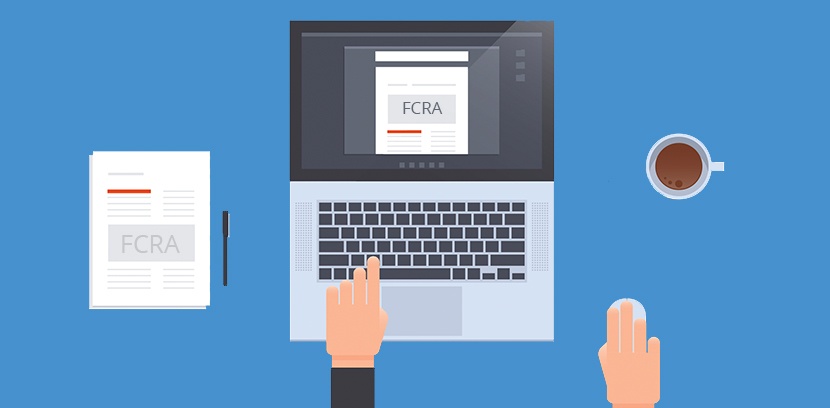As a rule, debt collections must be fair and honest per regulatory compliance at the federal and state level. The Fair Debt Collections Practices Act dictates what is construed as abusive and deceitful debt collections practices at the consumer level. Consumers and debt collectors must also be aware of the regulations stipulated by the Fair Credit Reporting Act. What's reported to the CRA's, or credit reporting agencies, can not only have a lasting effect on a consumer's credit but also their livelihood. A credit report can impact a person's ability to buy or lease a home or automobile and it can also prevent them from obtaining employment.
What is the Fair Credit Reporting Act?
The FCRA was signed into law in 1970 to require banks to report and maintain records to the Department of Treasury with regards to U.S. currency transactions . As the credit industry boomed, the Act has been revisited and amended to continue to protect consumer credit reporting and other investigative reports of personal information on consumers. Prior to the passage and adoption of the FCRA, there was widespread abuse in the industry including listing negative information on individuals and maintaining outdated information. More amendments were made to the act to include sharing of reports among affiliates, "pre-screening" of certain consumers before making unsolicited offers of credit and allowing free credit reports to consumers annually. Today, the FCRA is widely regarded as the law in protecting what public information is included on credit reports and offers consumers a way to dispute any data that is inaccurate or untrue.
What Do Debt Collectors add to Credit Reports?
Credit reports contain information as it pertains to any financial accounts where a person owes money as part of an agreement or contract. These accounts could include credit cards, mortgage, utility bill payments, auto loans, rent payments and other financed or credit accounts. The report will show the status of these credit accounts, income, employment, payment history (on time or late), how much credit you have available, how much credit you are using, and if your account has been sent to collections or a third party debt collector. It can also include court judgments, liens against property and bankruptcies. The goal of the report is to provide an accurate representation of your financial obligations and how you are handling them.
The FCRA's "Furnisher Rule" legally dictates how debt collectors can report to credit reporting agencies and what information is included on a credit report.
The rule states the responsibility of all collectors and creditors to furnish accurate and complete information and to investigate consumer disputes if the information is incorrect. In other words, debt collectors:
- Must not report information they believe to be untrue or inaccurate or that they've been told is untrue or inaccurate
- Must have policies and procedures in place to verify they are reporting information on the right person (including identifying information)
- Must establish controls and random sampling to ensure the integrity of the data
- Must maintain the records for a reasonable amount of time
- Must provide the date of the original delinquency and must have procedures in place against re-aging and duplicate reporting
- Must correct and update information where necessary
Furnishers must also notify a CRA if the information is being disputed, if an account is being closed and if an account is delinquent. There are special considerations for financial institutions who must also notify the consumer within 30 days if they are sending negative information with regards to delinquent accounts to a credit reporting agency. Medical or healthcare reporting has recently changed where there is a longer waiting period before delinquent accounts can be reported due to late insurance payments.
How Can Consumers Dispute Information?
Consumers should be aware of cases of false credit reporting including debt collectors reporting accounts that the debtor doesn't legally owe. This could be due to mistaken identity or connecting a spouse or parent of a debtor with the original debtor. Other examples include cases of re-aging, where the collector will fail to report the original date of the delinquency. This means that the delinquent account will continue to show up long after the date when it would have become obsolete on the report (usually seven years from the delinquency date).
Consumers do have the right to dispute inaccurate data on their credit reports at any time and with no time limits. As a best practice, consumers should follow these steps:
- Request and review a free copy of your credit report annually from annualcreditreport.com.
- Be aware of your rights under the Fair Credit Reporting Act.
- Dispute directly with the CRA that is reporting the incorrect data. The dispute and its correction will be free of charge.
- If you believe you are the victim of identity theft, report a fraud alert to the CRA as soon as possible.
- You may also report if you are or have been on active duty in the United States military.
- Include specific, detailed information with supporting documentation, if possible.
- Although not required, send the debt collector a copy of your CRA letter of dispute. The FDCPA protects the consumer from repeated contact and attempts to collect after this communication.
- Keep copies of all correspondence, including dates, so that you have a record of your dispute.
Credit reporting agencies that are not in compliance with the FCRA can be sued by the Federal Trade Commission (FTC), the Consumer Financial Protection Bureau (CFPB), consumers or the states in which the consumers reside.
As a consumer, you should be aware of your rights and what debt collectors can or cannot do in order to recover past due debts. Debt collection agencies must comply with the FDCPA, the FCRA and theTCPA while making attempts to collect.




